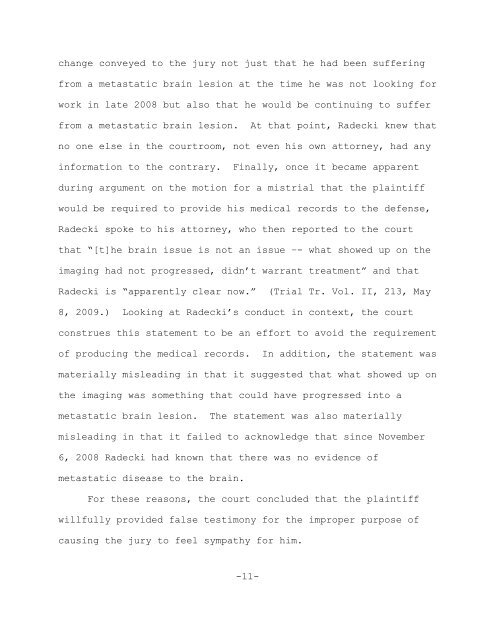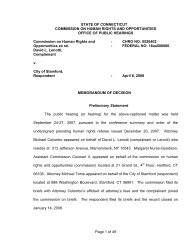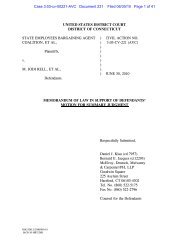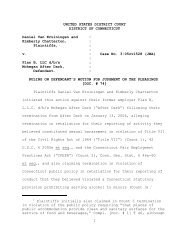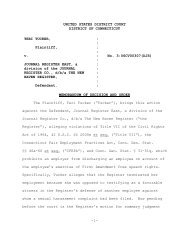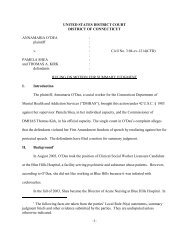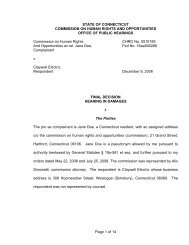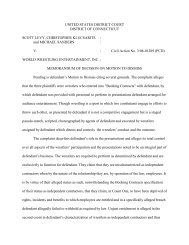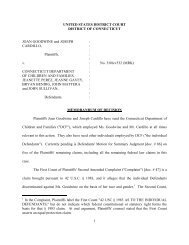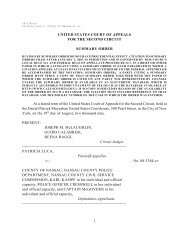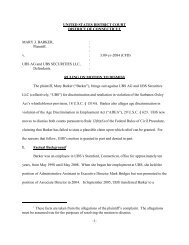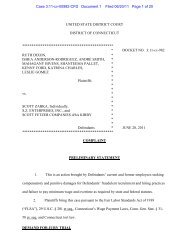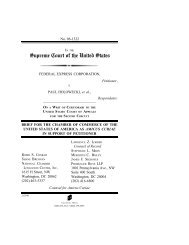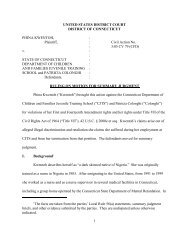Radecki v. GlaxoSmithKline - Connecticut Employment Law Blog
Radecki v. GlaxoSmithKline - Connecticut Employment Law Blog
Radecki v. GlaxoSmithKline - Connecticut Employment Law Blog
Create successful ePaper yourself
Turn your PDF publications into a flip-book with our unique Google optimized e-Paper software.
change conveyed to the jury not just that he had been sufferingfrom a metastatic brain lesion at the time he was not looking forwork in late 2008 but also that he would be continuing to sufferfrom a metastatic brain lesion. At that point, <strong>Radecki</strong> knew thatno one else in the courtroom, not even his own attorney, had anyinformation to the contrary. Finally, once it became apparentduring argument on the motion for a mistrial that the plaintiffwould be required to provide his medical records to the defense,<strong>Radecki</strong> spoke to his attorney, who then reported to the courtthat “[t]he brain issue is not an issue –- what showed up on theimaging had not progressed, didn’t warrant treatment” and that<strong>Radecki</strong> is “apparently clear now.” (Trial Tr. Vol. II, 213, May8, 2009.) Looking at <strong>Radecki</strong>’s conduct in context, the courtconstrues this statement to be an effort to avoid the requirementof producing the medical records. In addition, the statement wasmaterially misleading in that it suggested that what showed up onthe imaging was something that could have progressed into ametastatic brain lesion. The statement was also materiallymisleading in that it failed to acknowledge that since November6, 2008 <strong>Radecki</strong> had known that there was no evidence ofmetastatic disease to the brain.For these reasons, the court concluded that the plaintiffwillfully provided false testimony for the improper purpose ofcausing the jury to feel sympathy for him.-11-


